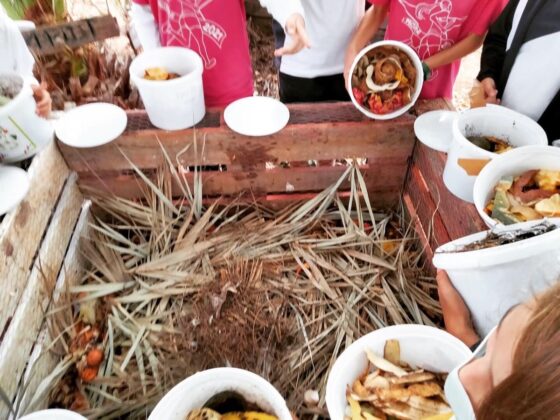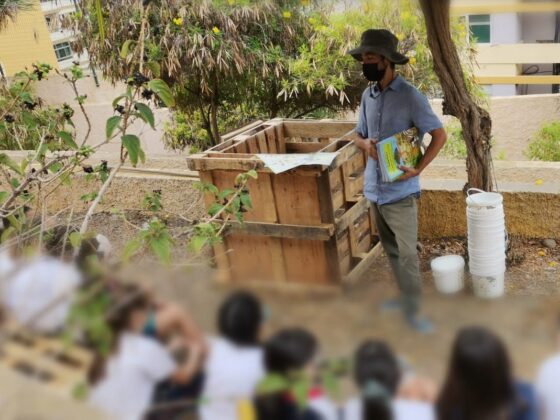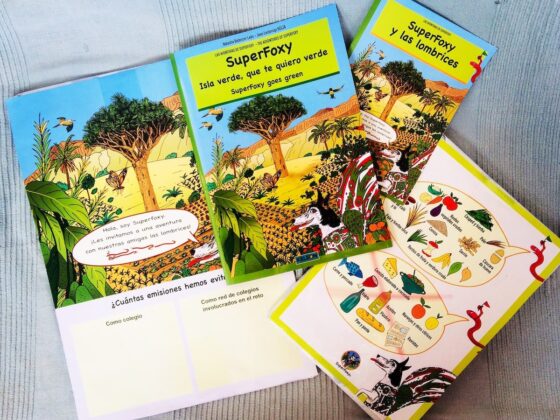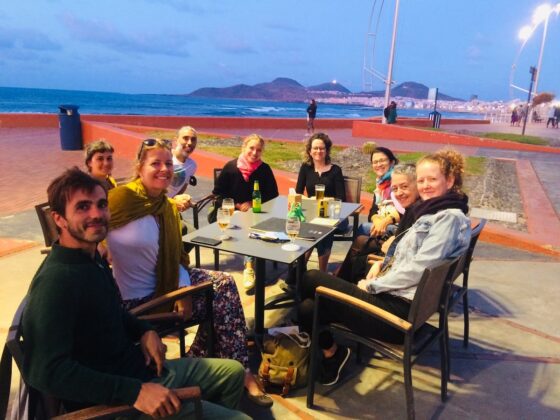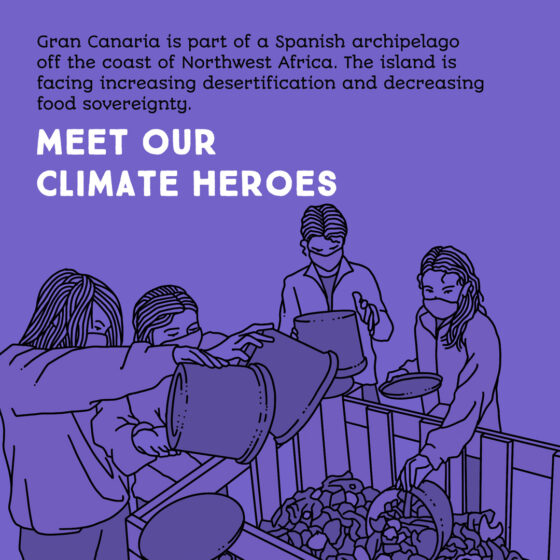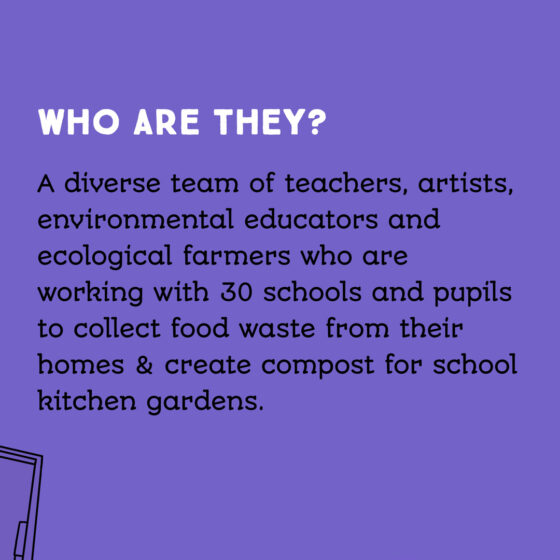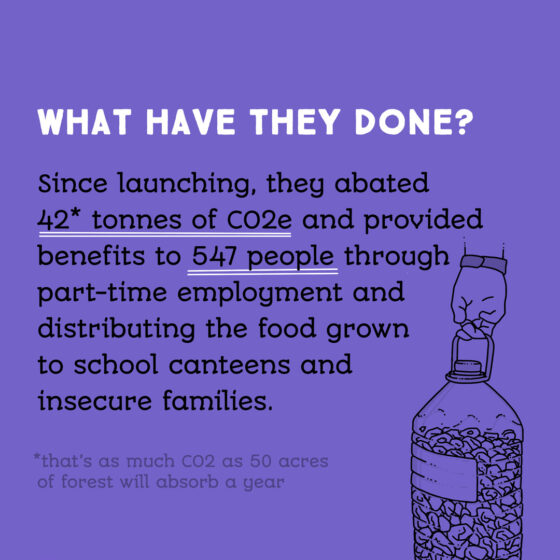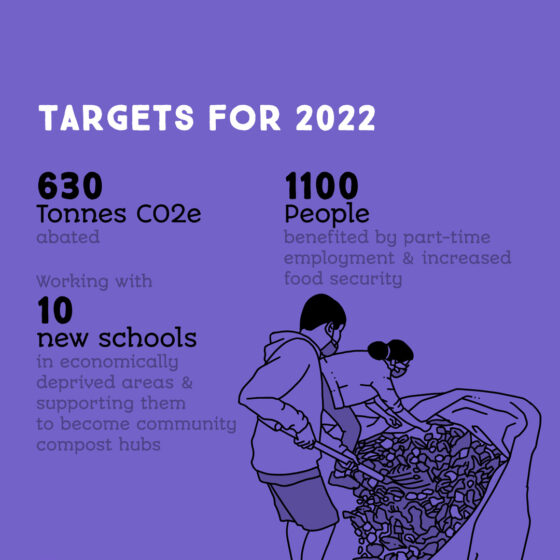Gran Canaria, Spain
Gran Canaria is an archipelago off the Atlantic coast of Northwest Africa which is part of Spain. Gran Canaria is considered to have a desert climate due to its severe lack of precipitation. The island has degraded soils and food sovereignty is low and decreasing.
The island risks being subject to the most catastrophic of consequences from the climate crisis. There is an urgent need for organic waste to be returned to the soil but there are few examples of best practice for large scale composting.
A diverse team of teachers, artists, environmental educators and ecological farmers, Canarias Siempreviva is working in 30 schools across the island.
The team is supporting children and their teachers to compost organic waste generated within each school and by families from the school communities to create compost for their school kitchen gardens. The food grown is used in the school canteen and distributed to food insecure families.
The team is carrying out a multi-stakeholder engagement process around organic waste management, with funding from the island government.
Finally, the team has worked with a local artist and illustrator to create a comic character called Super Foxy to help children understand composting and food.
Gran Canaria is a Take-Off Team
A Take-Off Team has been going for several months and has an established track record.
Start-Up Phase Supported by

News & Updates
The team is now preparing a prototype in La Isleta, a densely populated, economically deprived area of the capital city (Las Palmas de Gran Canaria.) They will work with 10 schools in the area, supporting them to act as community compost hubs, with bicycle-powered collection of organic waste from local residents and businesses. As most of these schools don’t have school kitchen gardens, the prototype will include designing and building raised beds where the compost will be used once it is ready, benefiting over 3,000 pupils.
This Level 3 prototype will prepare the team for Level 4 in which collection from local residents and businesses will be increased to approximately 80,000 kgs a month.
A local network of organic farmers will manage these large volumes of organic waste on their farms, to be returned to the community for use in green spaces once it is ready.
The team is starting to work closely with local government, having successfully demonstrated an at-scale and replicable alternative for organic waste management on the island.
Become a Supporter
Please contact us for more details on how you can partner and support the Gigatonne Challenge.


